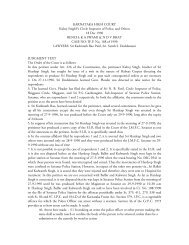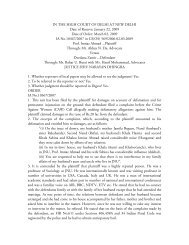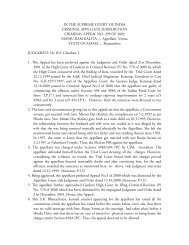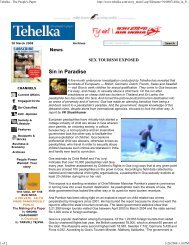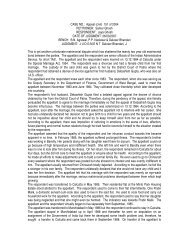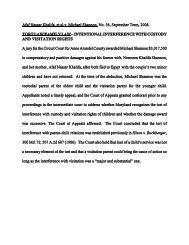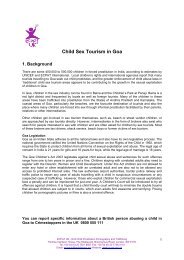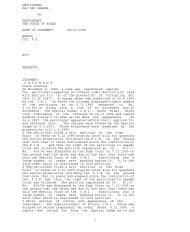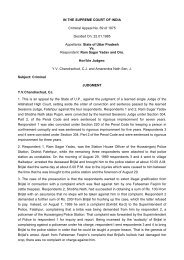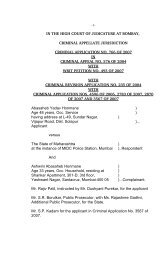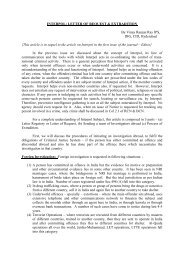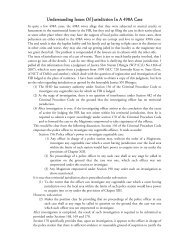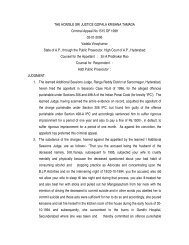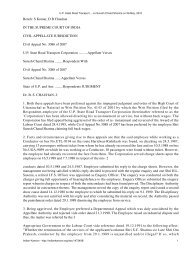THE HINDU MARRIAGE ACT, 1955 - IPC 498A
THE HINDU MARRIAGE ACT, 1955 - IPC 498A
THE HINDU MARRIAGE ACT, 1955 - IPC 498A
You also want an ePaper? Increase the reach of your titles
YUMPU automatically turns print PDFs into web optimized ePapers that Google loves.
?70 International and Comparative Law Quarterly [VOL. 6of her marriage the respondent had a wife or wives living, or on theground that the respondent has taken another wife after thesolemnisation of his marriage with the petitioner: in both thecases it is necessary that the other wife or wives should be livingat the time of the presentation of the petition '&; and(b) that after the solemnisation of the marriage, the husbandhas been guilty of rape, sodomy or bestiality.15Fair Trial RuleThat the framers of the Hindu Marriage Act were much influencedby the English law of marriage and divorce becomes further clearfrom the provision of fair trial to every marriage incorporated inthe Act.lG The Act provides that no marriage shall be dissolvedunless three years have elapsed since the date of the solemnisationof the marriage, though in cases of exceptional hardship, courtshave been empowered to dissolve the marriage earlier.''Three years have been considered as a reasonable period to givea fair trial to every marriage. If parties fail to live together evenafter that, they are permitted to have recourse to divorce.The principle is right, but it creates certain problems. Forinstance, if a party to the marriage is guilty of adultery after afew months of his or her marriage or if she or he is converted tosome other religion, must the other party be asked to wait forthree years ?There also seems some inconsistency between a few provisions.A provision of the Act l8 provides that if the respondent has refusedto comply with the decree of restitution of conjugal rights for twoyears, the petitioner is entitled to obtain dissolution of marriage:suppose that a decree for restitution of conjugal rights is passedjust after six months of the marriage and the respondent refusesto comply with it for a period of two years. Under that provisionof the Act the petitioner is entitled to get a divorce after onlytwo years and six months of his marriage, but the fair trial ruleprovides that no marriage can be dissolved unless three years haveelapsed since the solemnisation of the marriage. Only if this isconsidered to fall under the exceptional hardship clause, cananomalous positions be avoided.''14 s. 13 (2) of the Act.15 Ibid.16 The fair trial rule has been almost verbatim taken from the English MatrimonialCauses Act, 1950.17 s. 14 of the Act.18 s. 13 (1)of the Act.19 Proviso to s. 14 (1) of the Act.



